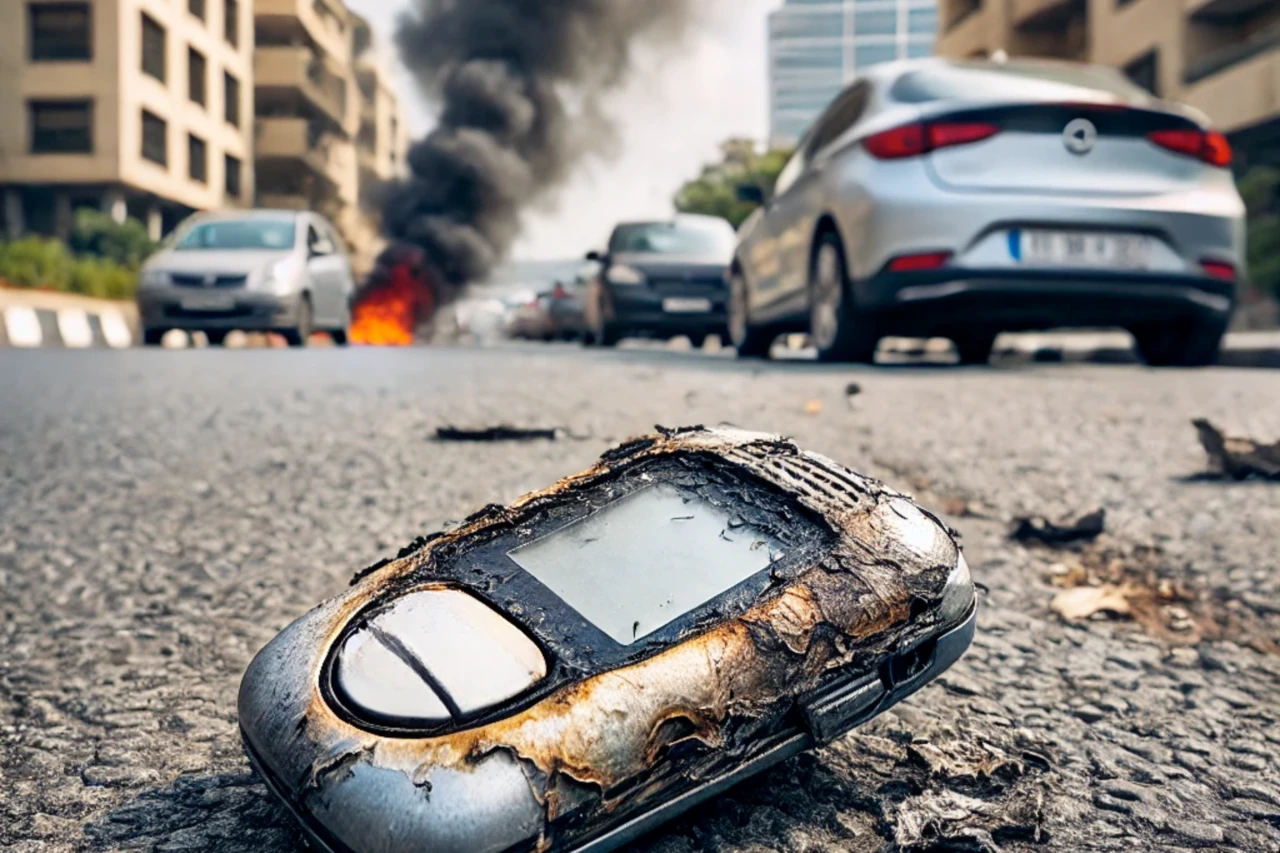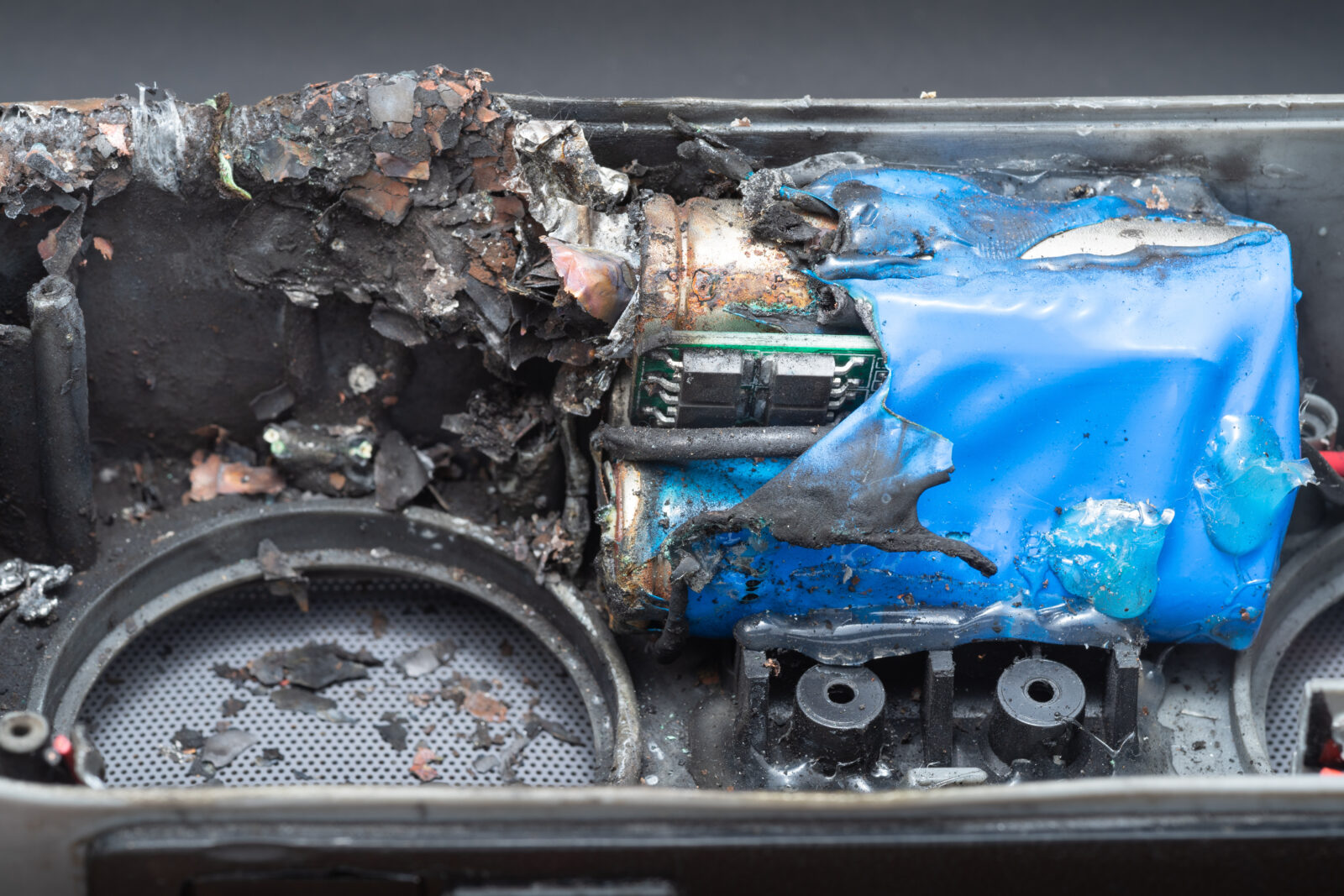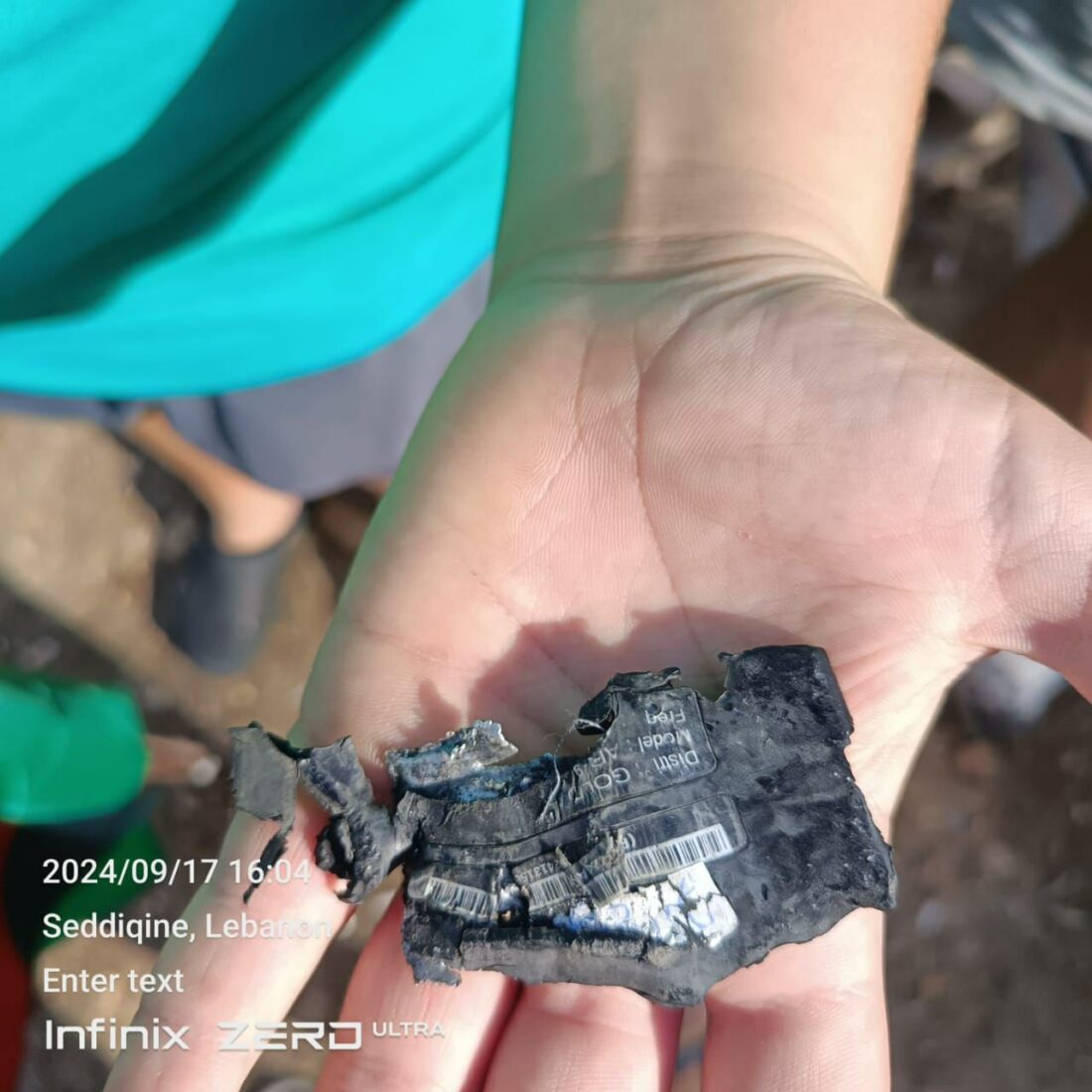Can phones, electric car batteries pose same explosion risk as Hezbollah’s pagers?
 Exploring the safety of everyday devices like phones and electric cars in the wake of the Hezbollah pager explosions, which were deliberately rigged to detonate. (Created with DALLE)
Exploring the safety of everyday devices like phones and electric cars in the wake of the Hezbollah pager explosions, which were deliberately rigged to detonate. (Created with DALLE)
After the Hezbollah pager explosions in Lebanon on Sept. 17, many wonder if devices like phones and electric car batteries could pose an explosion risk.
This incident, where Israel allegedly triggered pagers used by Hezbollah, has fueled public fear. However, experts clarify that everyday devices do not pose the same risk.

Hezbollah pagers were deliberately rigged, unlike phones or car batteries
- Israeli forces reportedly rigged Hezbollah pagers with explosives, resulting in over 2,800 injuries.
- Cybersecurity expert Dr. Ahmet Senol explained that these pagers were tampered with and remotely detonated using advanced technology.
- “The pagers had a specific vulnerability that Israel exploited, making it completely different from consumer devices like mobile phones,” Senol emphasized.
Phones and electric car batteries use lithium-ion batteries, which are known to overheat under extreme conditions. However, battery failures in consumer electronics are rare and typically caused by overheating damage or manufacturing defects.
Unlike the Hezbollah pagers, these devices are not intentionally rigged to explode. “Most battery malfunctions in phones are due to overcharging or damage, not external manipulation,” Senol added.

Could lithium-ion batteries in phones pose explosion risk?
Phones have been scrutinized for potential battery explosions, particularly after the Samsung Galaxy Note 7 recall. The device’s manufacturing defects caused overheating, but no external sabotage was involved.
Armoya High-Tech CEO Tuncay Uludag raised concerns about remote updates to battery management systems (BMS), suggesting they could theoretically be hacked. However, he emphasized that such an event would require a highly sophisticated attack, which is extremely unlikely in everyday circumstances.
“Battery management systems should remain fixed and not remotely updated,” Uludag had warned, but added that ordinary phone users are safe from such risks. Overheating or physical damage remains the most common cause of battery failures in phones.

How battery technology works to prevent failures
Lithium-ion batteries have become the standard power source for phones and electric vehicles because of their high energy density and efficiency.
- They include safety features such as BMS that control charging and prevent overcharging. These systems monitor temperature, voltage, and current to detect irregularities.
- Armoya High-Tech CEO Tuncay Uludag highlighted concerns about remote updates to BMS, but noted that they are secure enough to prevent large-scale failures.
- “While theoretically possible, such manipulation would be highly sophisticated and is highly unlikely in everyday life,” he said.

Electric car batteries carry risks, but not from sabotage
Electric cars have also raised safety concerns due to the possibility of thermal runaway, a chain reaction where a damaged or overheating battery can catch fire.
- Experts emphasize that these incidents are rare and unrelated to sabotage.
- Electric car batteries, like those in Tesla and Hyundai models, have caught fire due to overheating, but this results from accidents or faults, not external tampering.
Researchers are developing AI and sensor technologies to prevent these issues. Basab Goswami from the University of Arizona believes that we need to address safety concerns related to lithium-ion batteries, but asserts that they are not designed to explode like bombs.
His team is working on algorithms that predict when and where a battery may overheat, giving engineers time to prevent thermal runaway.

Phones, cars are safe from explosion risk, but caution is always recommended
While the Hezbollah pager explosions were a result of deliberate sabotage, the risks associated with phones and electric cars come from rare malfunctions, not planned attacks. Senol reassured the public that “normal phone users should not fear their devices exploding like the pagers. It’s a completely different scenario.”
Ultimately, phones and car batteries come with built-in safety features that make remote sabotage extremely difficult. Users should still follow basic safety measures, such as avoiding extreme heat and using approved chargers. But the idea that consumer devices could be weaponized, as in the Hezbollah case, remains highly improbable.



